Partnerships drive FOG-to-fuel circular economy

Sewer blockages due to the impact of fats, oils, and grease (FOG) in wastewater systems is a major environmental challenge, but innovative waste management partnerships are delivering effective solutions, says Chris Clemes, chief executive of engineering technology company, EcoClarity and Rob Menzies, managing director of Serious Waste Management.
Fats oils and grease – otherwise known as FOG – are common byproducts of restaurants and food processing facilities, but FOG disposal has long posed a challenge.
Currently too much FOG enters the sewers and drains, where it often results in blockages, which can significantly impact the public, the environment, and be costly to clear. The alternative is landfill disposal, which fails to capitalise on the value of FOG as a potential renewable fuel source.

EcoClarity and Serious Waste at FOG Recovery Hub in Hull.
Closing the loop
The ongoing success of this proven solution relies heavily on close collaboration. EcoClarity’s work with waste services contractor Serious Waste Management exemplifies the power of partnerships in unlocking a FOG-to-fuel circular economy, now and into the future.
“Grease trap waste can be recycled into biodiesel, which can then be used to power vehicles and other equipment. This closes the loop on the waste stream and reduces reliance on fossil fuels,” explains Rob Menzies, managing director, Serious Waste Management.
“Collaborating on FOG recovery and reuse is a win-win situation for businesses, hauliers, the water sector and the environment. It promotes resource recovery, reduces landfill waste, creates a closed-loop system, and contributes to a more sustainable wastewater management system.”
Chris Clemes, founder and chief executive of EcoClarity continues, “Once the waste is in our recovery hub and has been quantified and verified, we can calculate greenhouse gas emissions for FSEs and other businesses who have provided their FOG. It’s not only reducing cost and greenhouse gas emissions, our partnership with Serious Waste underscores the importance of proper FOG disposal and means we can reward responsible businesses.”

Cutting carbon
As EcoClarity sites are registered with Argent Energy’s Carbon Certification Scheme, the company can track the volume of greenhouse gas (GHG) emissions saved by the biodiesel produced from its FOG feedstock. This allows companies to demonstrate their commitment to sustainability and attract environmentally conscious clients and investors.
Boasting up to a 90% reduction in GHGs, biodiesel contributes to climate change mitigation and could be used to power tankers transporting wastewater – creating a tight circular economy of value.
Data capture
Historically, most organisations have lacked the specialised data and techniques needed to evaluate how much FOG is present in their tanker loads, explains Clemes.
“EcoClarity analyses every load that comes into our hubs, so we know the precise mass and FOG content. As the FOG-rich waste goes through our mass meter, we can quantify it, and share the data with the client – supporting their green ambitions with robust data.”
Using the EcoClarity data, Serious Waste Management has saved around 47,000 tonnes of GHG emissions since they began working with EcoClarity two years ago.

EcoClarity Site Operator at FOG Recovery Hub in Hull.
Smoother sewers
Sewer blockages are a major concern in the UK, with an estimated 200,000 occurring annually, and FOG cited as the cause in around 75% of cases. A build-up of FOG hinders the smooth operation of sewer systems and wastewater treatment plants (WwTPs), shortens the lifespan of critical assets and increases maintenance costs.
This burden ultimately falls on water companies, which may be forced to raise prices for customers. Additionally, FOG blockages can cause sewer overflows, creating a public health hazard and impacting the environment.
EcoClarity is growing a network of FOG Recovery Hubs across the UK, with plans to scale to 20-30 sites in the next three years. Multiple potential sites have been identified, and the company is currently working on a FOG Recovery Hub in Hull, in collaboration with Yorkshire Water. Sites belonging to United Utilities and Southern Water, as well as two large entertainment venues in London and Cornwall, are also in the pipeline.
Planning for the future
Meeting the pace of increasing demand for FOG disposal sites is currently hindered by environmental permit issues, with the process taking up to two years. EcoClarity is engaging with the Environment Agency to tackle the issue and find ways to streamline permit applications.
Clemes explains, “The permit process needs modernisation. We want to provide FOG recovery across multiple locations, before grease builds-up in sewers, but delays in obtaining permits is a major hurdle.”
“More geographically dispersed sites are needed,” adds Menzies. “Collaboration within the water sector to find sites will help water companies meet environmental targets and reduce haulier travel times and costs.”

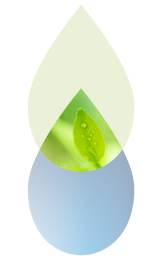

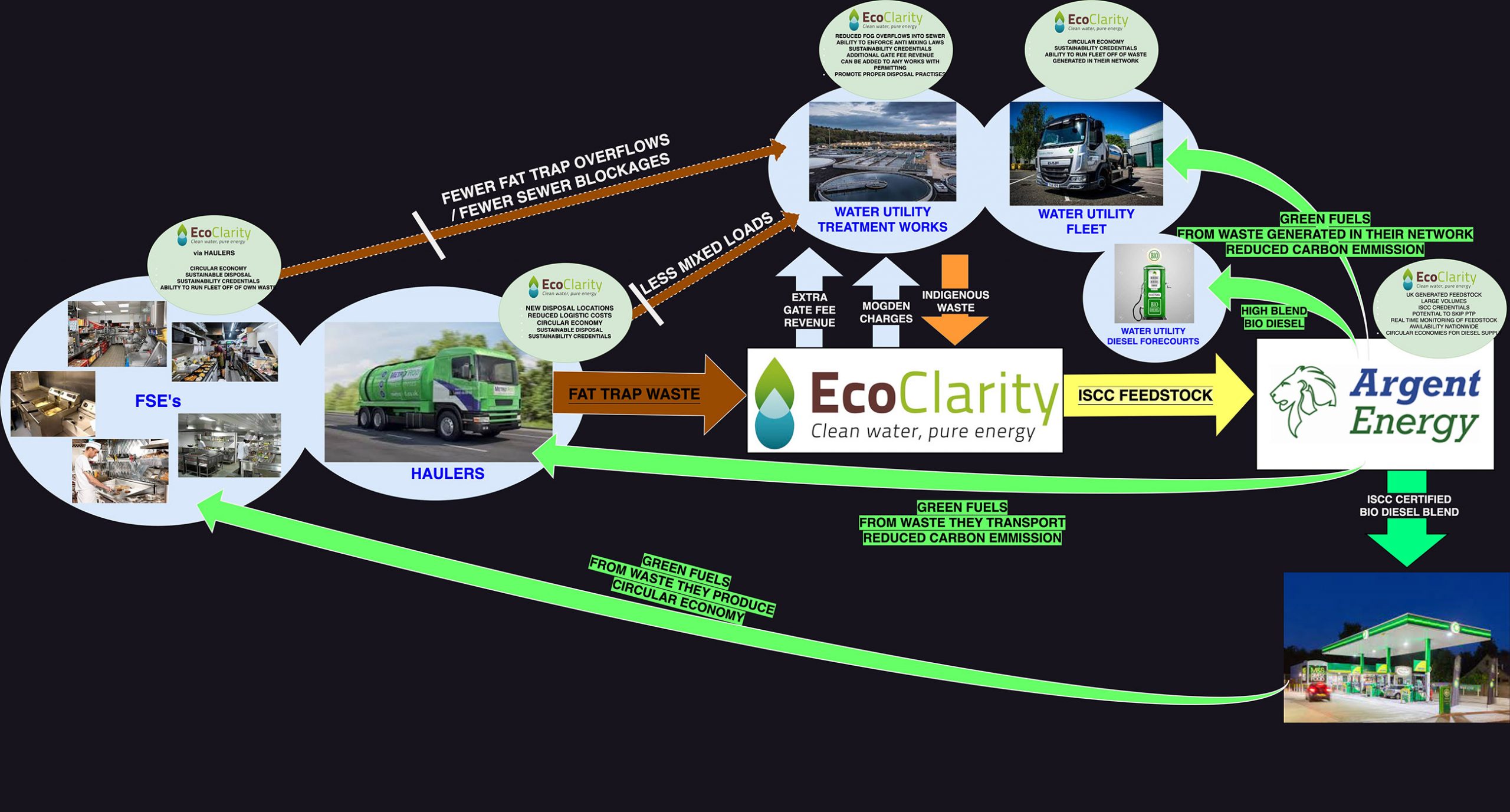
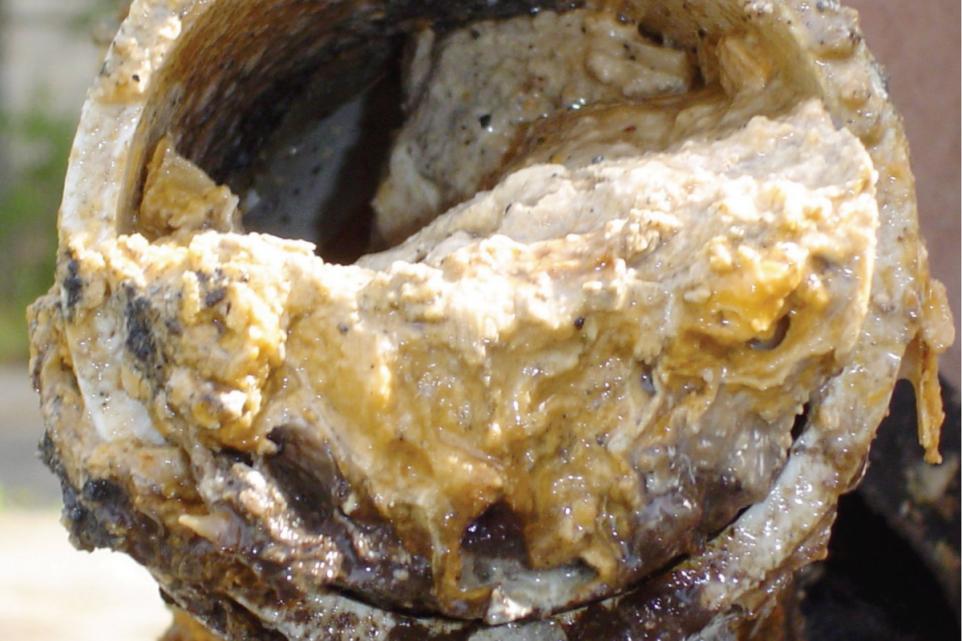
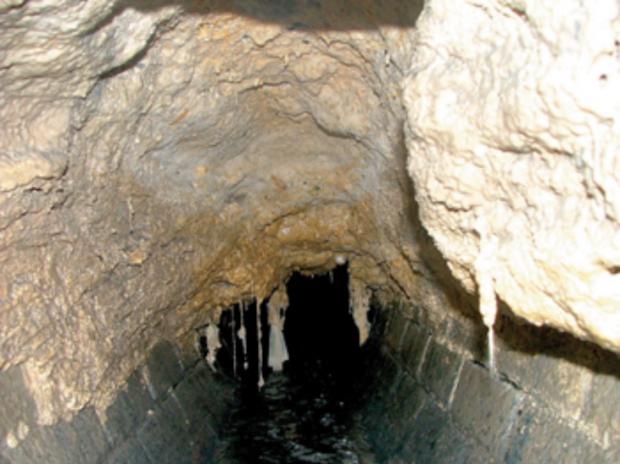
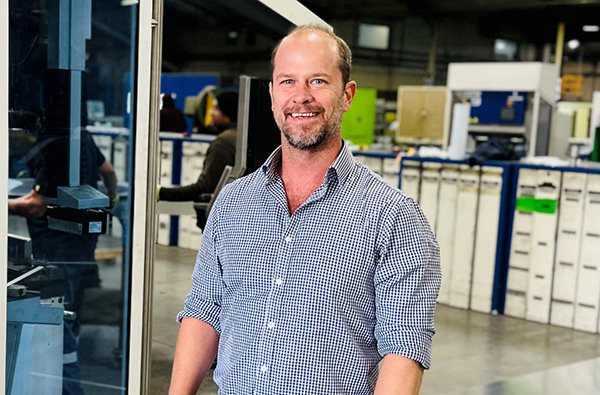
Recent Comments